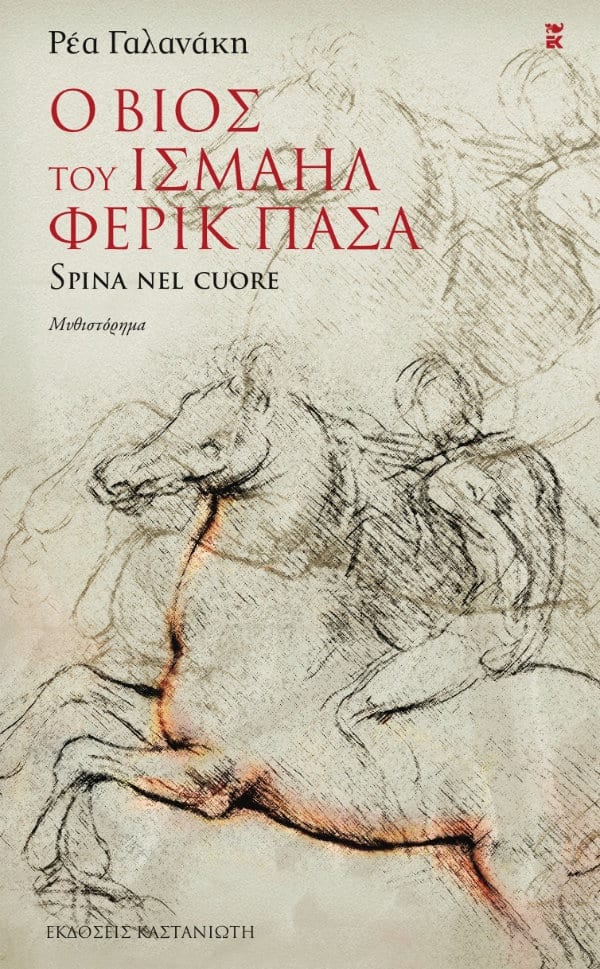Ο ΒΙΟΣ ΤΟΥ ΙΣΜΑΗΛ ΦΕΡΙΚ ΠΑΣΑ: SPINA NEL CUORE / THE LIFE OF ISMAIL FERIK PASHA: SPINA NEL CUORE
 “>
“>
Author:
RHEA GALANAKI
Country:
Greece (GR)
Book Theme:
Contemporary writers of your country
Publisher:
KASTANIOTIS
Publishing Year:
2010
Rhea Galanaki, born in 1947 in Heraklion, Crete, is a prominent contemporary Greek author. She studied History and Archaeology at the University of Athens. Galanaki’s literary career began in the 1970s with poetry, but she gained widespread recognition for her novels, which often blend historical events with fictional narratives. Notable works include “The Life of Ismail Ferik Pasha” and “Eleni, or Nobody.” Her writing delves into themes of identity, history, and gender, earning her several awards, including the Nikos Kazantzakis Prize. Galanaki remains a vital figure in modern Greek literature, contributing essays and stories that resonate with contemporary issues.
National Award for Children’s and Young People’s
Abstract
“The Life of Ismail Ferik Pasha: Spina nel Cuore” by Rhea Galanaki is a compelling historical novel that delves into the intricate life and identity of Ismail Ferik Pasha, a prominent figure in the 19th century. Galanaki’s narrative unfolds against the backdrop of the Ottoman Empire and the burgeoning Greek state, providing a nuanced exploration of themes such as cultural identity, loyalty, and the personal ramifications of historical conflicts.
Ismail Ferik Pasha, born Michalis Vrettos, is a Greek Christian from Crete who is abducted by Ottoman soldiers as a child. Raised as a Muslim and trained in the Ottoman military, Michalis transforms into Ismail, a high-ranking Pasha in the Egyptian army. The novel meticulously traces his internal and external journey, depicting his struggles with his dual identity and the cultural dissonance he experiences. Galanaki presents a deeply human portrait of Ismail, who is torn between his Greek heritage and his loyalty to the Ottoman Empire.
Through Ismail’s story, the novel explores the broader socio-political dynamics of the time, including the tension between the Greek quest for independence and the interests of the Ottoman Empire. The personal narrative of Ismail is interwoven with historical events, offering readers insight into the complexities of identity and belonging during this tumultuous period. Galanaki’s evocative prose brings to life the emotional and psychological landscape of her characters, making the historical context vividly accessible.
The title, “Spina nel Cuore” (Thorn in the Heart), encapsulates the central theme of the novel: the enduring pain and conflict of divided loyalties. Ismail’s life is marked by a constant negotiation between his past and present, his origins, and his imposed identity. This poignant exploration of a historical figure’s life serves as a lens through which readers can understand the broader human condition, particularly the impact of cultural and religious conflict on individual identity.
Galanaki’s work is not merely a historical recount but a profound commentary on the fluidity of identity and the enduring impact of historical upheavals on personal lives. It is a testament to the author’s ability to blend meticulous historical research with rich, empathetic storytelling, creating a narrative that is both informative and deeply moving.



